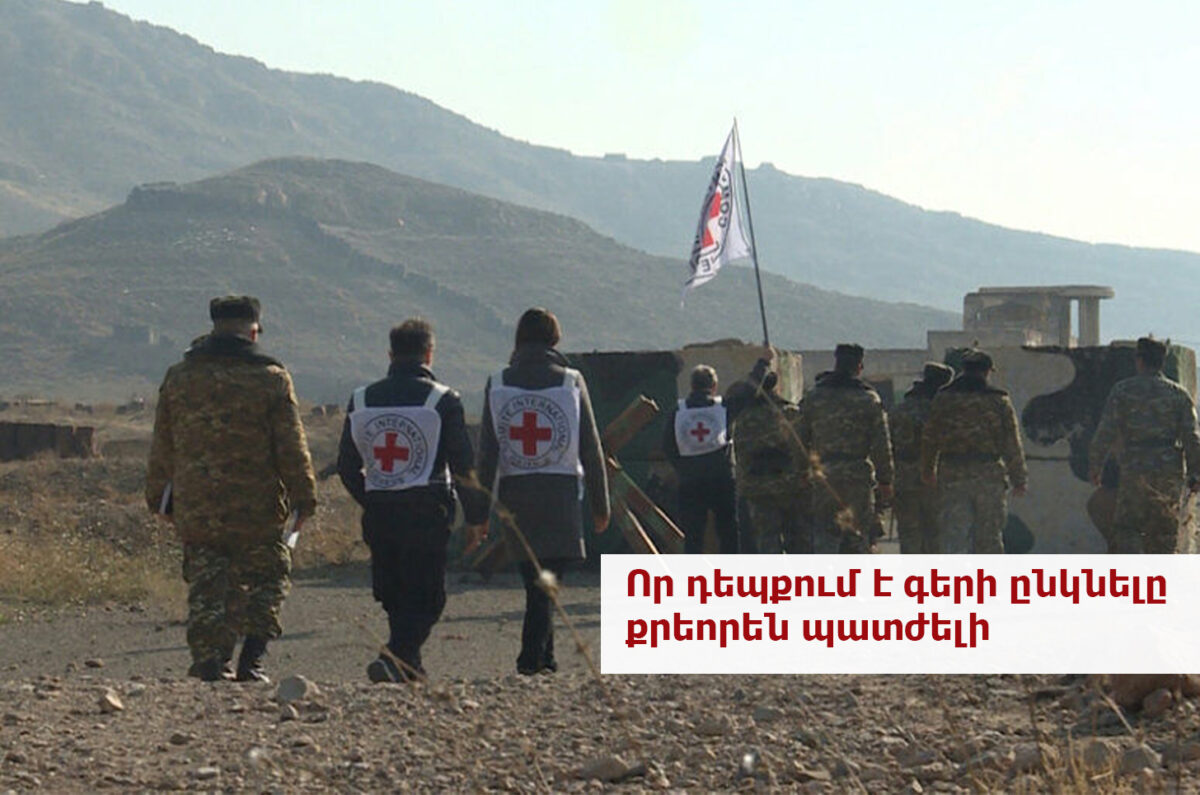On November 17, during a question-and-answer session with the National Assembly-Government, Nikol Pashinyan said that it was time to properly investigate each case of captivity. He spoke about the military code as to when captivity is not considered a crime.
“It’s time to properly investigate each case of captivity. Every person serving in the Armed Forces has responsibilities. Maybe we did something wrong emotionally. It is necessary to examine what it means to be taken prisoner, under what circumstances. Military regulations clearly state in which case captivity is not considered a crime. It is necessary to examine whether we are dealing with that case or not. For example, it is obvious and formulated that when a person is injured or unconscious, he can not have any ‘pretense,'” Pashinyan said in response to Tigran Abrahamyan’s question.
This statement was followed by a public discourse on the issue. Some hastened to declare that “a captive is not a hero, a captive is a traitor.” NA expert Artsrun Hovhannisyan indirectly hinted that not being taken prisoner is a step of a dignified Armenian soldier and so on.
Media.am, omitting the emotional side of the problem, presents the legal grounds for such situations, when captivity is a crime, when it is not, and what obligations the state has towards prisoners of war.
Armed Forces Code
The Code of Internal Service of the RA Armed Forces, about which Nikol Pashinyan speaks, defines the rights and responsibilities of servicemen. The Code states that the performance of military duties means both participation in hostilities, combat duty, and being held captive or held hostage, except in cases of voluntary captivity.
Article 20 stipulates that “during hostilities, even when cut off from his unit and under complete siege, a serviceman must show resolute resistance to the enemy, avoiding capture. He must do his military service to the end in battle.” If a soldier, being cut off from his troops and exhausted by all means of resistance or taken prisoner as a result of severe injury, is obliged to seek and use every opportunity to free himself and his comrades from captivity, to return to his troops.
The Code also stipulates that a captured serviceman has the right to disclose only his/her last name, first name, patronymic, military rank, birth date and personal number during interrogation. He is obliged to help his captured friends, to keep them from supporting the enemy, to reject the enemy’s attempts to use the soldier to harm the armed forces of the Republic of Armenia.
Criminal Code
The Criminal Code defines crimes against military order.
Article 381 stipulates that voluntary captivity due to cowardice or disobedience is punishable by 8 to 15 years in prison.
It is important, however, that the same Armed Forces Code, as well as international humanitarian law, obliges the state, the military command and state bodies with such powers, to take measures in accordance with international law to protect the rights of servicemen and repatriate them. This measure does not depend on the circumstances under which the soldier was taken prisoner.
Human rights activist Siranush Sahakyan commented
Siranush Sahakyan, a human rights activist representing the interests of Armenian prisoners of war at the European Court of Human Rights, told media.am in which cases being taken prisoner is a criminal act, and in which case not.
“If a person finds himself in a blockade and does not have a weapon and it is pointless to resist, he has an injury that does not allow him to harm the enemy, these are legal cases of captivity. In this case, the captive cannot be pursued. But there are also cases when a person voluntarily refuses to use weapons against the enemy because it can lead to an active fight, conflict, during which he may be wounded or killed, and he prefers, as a way of insuring his life, not to defend the homeland, but voluntarily surrender. This is a crime against the military order, with the same logic as non-compliance with orders, desertion, etc.,” said Siranush Sahakyan.
Voluntary captivity, says the human rights activist, is a criminal offense and is considered a very serious crime, but also adds that in terms of international obligations, the state whose citizen was taken captive must ensure the repatriation of the captive with positive actions. This is regulated by international humanitarian law.
Thus, the RA Armed Forces Code and the Criminal Code define in which cases captivity is a crime and in which case not. However, regardless of the circumstances of the captivity, the state has an obligation to take measures to return the prisoners of war.
Ophelia Simonyan







